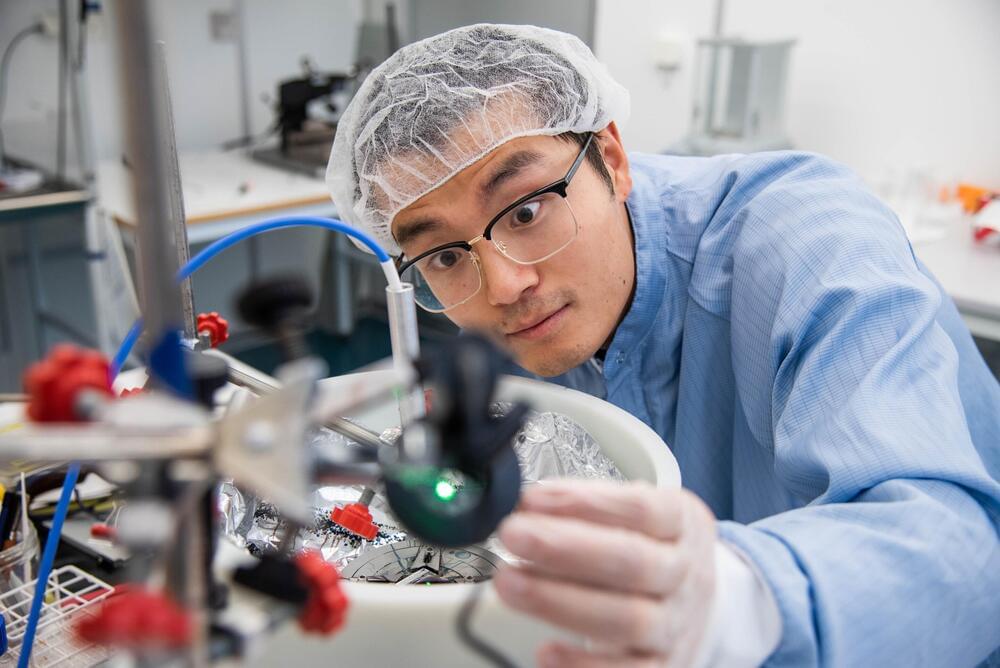Material used in organic solar cells can also be used as light sensors in electronics. This has been shown by researchers at Linköping University, Sweden, who have developed a type of sensor able to detect circularly polarized red light. Their study, published in Nature Photonics, paves the way for more reliable self-driving vehicles and other uses where night vision is important.
Some beetles with shiny wings, firefly larvae and colorful mantis shrimps reflect a particular kind of light known as circularly polarized light. This is due to microscopic structures in their shell that reflect the electromagnetic light waves in a particular way.
Circularly polarized light also has many technical uses, such as satellite communication, bioimaging and other sensing technologies. This is because circularly polarizing light carries a vast amount of information, due to the fact that the electromagnetic field around the light beam spirals either to the right or to the left.
